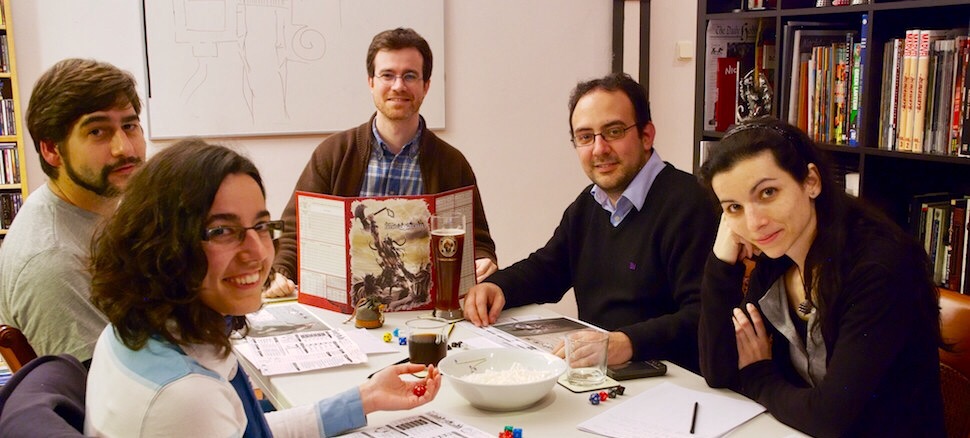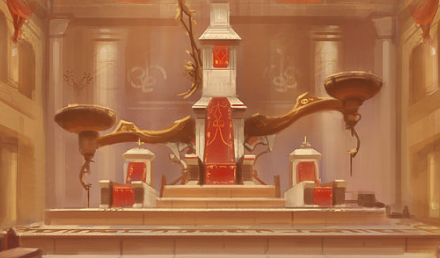There is an adage when it comes to role-playing games that I very much believe in: “bad game is worse than no game.” Several months ago it was recommended to me that I look for online gaming groups to play with, perhaps using services like Twitch.tv or Roll20. As I browsed through the list of games I could be interested in, and looked at the various groups, I was horrified. Almost without exception, each group was filled with the gamer stereotypes I greatly dislike playing with: the “winner,” the rules-lawyer, and the escapist.
The meat of this article isn’t about my favored play-style, or groups I enjoy playing with. If nothing else, I want readers to leave with the idea that, whatever their preferred flavor of gaming, what will make for the best gaming experience is finding a group that works well together. I can’t define what that is or means for others, but I can say from experience that too often gamers jump into (or stay with) bad games because either they fear they won’t be able to find another game, or in the ill-fated hope that the game will improve. Take my word on this, your suffering doesn’t help anyone.
Speaking solely about my own interests and desires, gaming is an opportunity for a group to come together and collaboratively tell a story, to add their own spice and flavor to the environment the Storyteller/Game Master has created. It’s a social experience, both in-character and out, and in the end the specific rules presented in the books should be used to facilitate good story, not railroad character decisions. In the end, what I want out of a game is a good story that I can talk about and retell later, and hopefully the forging of closer bonds with fellow players.
When I mentioned I saw groups composed largely of the stereotypes I can’t stand to play with, I don’t mean to say that nobody else should play with them. There are groups, games, and settings to fit almost every dynamic and play style, and I wholly encourage those interested in gaming to find which ones they like best. I know of some groups of players that have a blast no matter what setting they play, while others try to stick to a particular theme or genre when it comes to their stories. Everyone’s input is valid, and it’s very worth your time to make sure that your input will be both appreciated and heard by the rest of the group before you decide to play with them.
Drawing things back to my personal experiences, I want to discuss the attitudes and personalities that I discover make for uncomfortable gaming experiences for me. In the past I encountered many new gamers, and in some situations was tasked with helping them find a play-style of their own. I shared some of the following experiences and stories as examples of how I try not to be, and people I try not to game with, for my own personal sanity.
- The Winner: a broad category, “the winner” is a play-style I describe as having to always be the center of attention, on-top, or right about everything. I find that this can breed a very antagonistic game, where one or more people try to control the spotlight and make the game all about them. Whether it’s by playing the edgiest character who ever existed, the most heroic hero who can’t fail, the unearthly beauty who seduces everyone (see a recent post about this one in particular), or the absolute center of attention, I find that these players drain the fun out of the room, particularly when they don’t think things are going “their way.” I do want to mention that it’s possible to play the same character concept or archetype “the winner” may and not have it be a detraction at all – what sours it for me is the attitude and personality of the person who routinely, perhaps habitually, plays in this manner.
- The Rules-Lawyer: a specific sub-set of “the winner,” a rules-lawyer always has to be right about everything mechanics-related, whether they are factually correct or not. There are times, for me, when story trumps a particular rule or die roll, and I love playing with others who agree. I often find that rules-lawyers are incredibly antagonistic when it comes to being “right,” taking any questioning of their memory to be a personal attack, even if they are later shown to be in the wrong. Every gaming system is flawed and could be improved in some way; occasionally in many ways. For me the focus is on the story, not the specific minutiae of some rule buried on page 341.
- The Escapist: this is a harder category to describe, but one I see all too often. Role-playing games are a great opportunity to step outside of yourself, to explore a different world in a different body and mindset, so to speak. The games and stories are fiction, much as a stage play is. What holds true in theatre however often holds true when it comes to other performance-based entertainments like gaming: if someone shows up just to escape their actual life, to experience a fantasy life they wished was their own, they are trouble. There are people who take games too seriously, too vigorously, take what happens to their fictional characters too much to heart. I’ve learned I just need to stay away from escapists when it comes to my gaming groups.
When I say that a bad game is worse than not gaming at all, I mean that gaming is supposed to be a fun, collaborative, engaging experience for all involved. It can be stressful, particularly for those running games, but it’s an opportunity to sit down and enjoy an afternoon or evening with others. Missing or not having that experience is unfortunate, but not having a game, to me, far outweighs the stress and frustration inherent in playing, running, or otherwise participating in a game that doesn’t meet your needs, wants, or goals.
I want more people to enjoy playing games, and to be exposed to the vast, nearly innumerable, stories that can be created and shared. All too often I see people either drawn to or settling for individuals or groups who don’t meet their needs, and they don’t know there may be alternatives out there.















